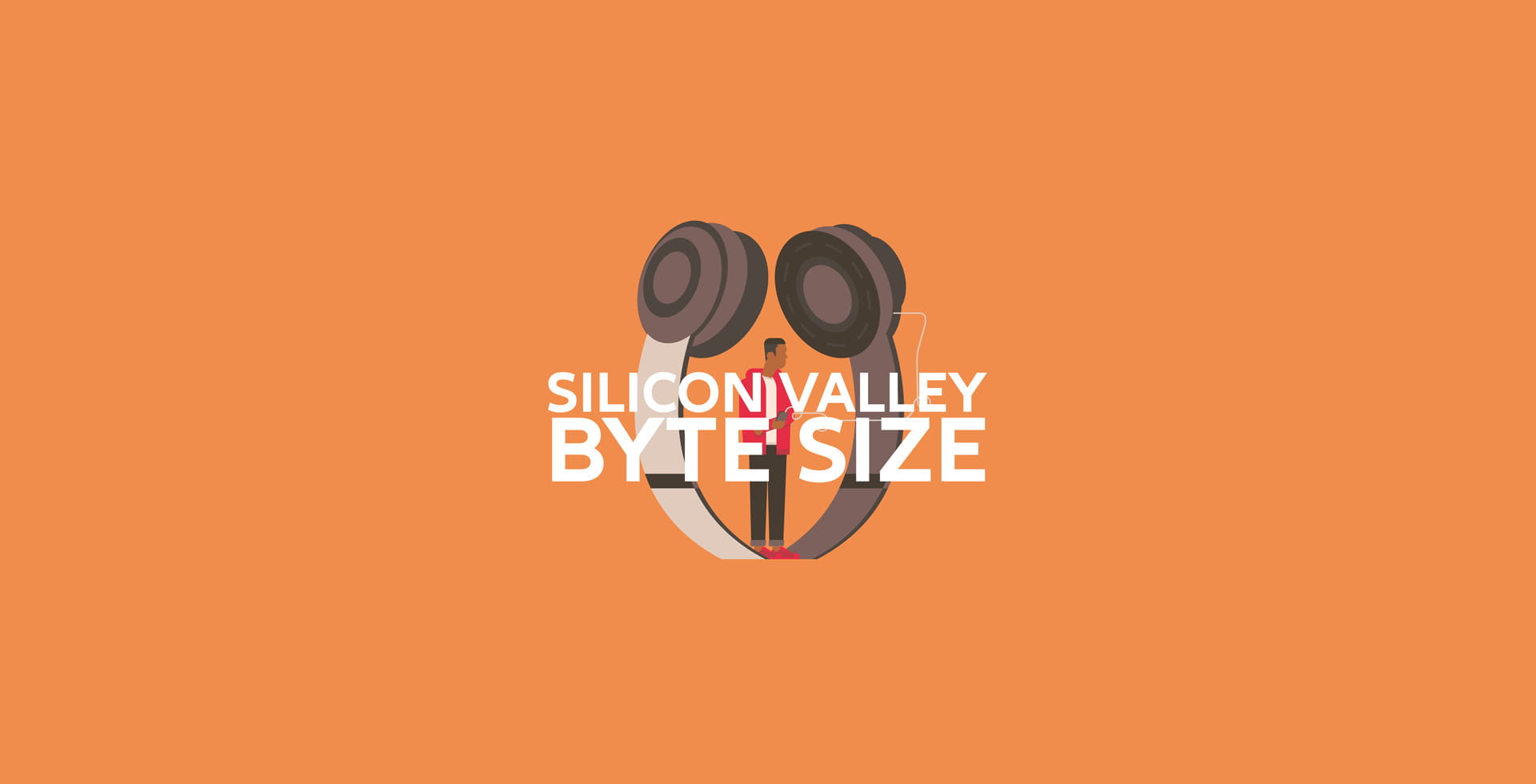Silicon Valley Byte Size - The Allianz Technology Trust Podcast
Searching for gems in the tech sector

In this episode of Silicon Valley Byte Size, Cherry Reynard sits down with Allianz Technology Trust fund manager Mike Seidenberg to explore the overlooked corners of the tech sector. While mega-cap stocks dominate headlines, Mike shares insights on emerging opportunities in consumer tech, cybersecurity, and artificial intelligence. He also discusses how the Trust is navigating market volatility, the potential of quantum computing, and real-world applications of AI that are already reshaping industries. Tune in for a grounded, forward-looking perspective on where tech is headed next.
CR : Hello and welcome to Silicon Valley Byte Size, an update on the tech sector from the Allianz Technology Trust. I'm Cherry Reynard, and with me today is Mike Seidenberg, fund manager on the Trust. Now, as the rest of the world focuses on the magnificent seven, we're going to be looking at what's happening elsewhere in the technology sector. So welcome, Mike.
MS: Nice to see you.
CR: Now, with so much concentration on the mega-caps, I think that story is pretty well understood and well covered, but I wonder if we could talk a bit about what's happening elsewhere in the technology sector, you know, have there been any noticeable areas of strength and/or weakness in the recent round?
MS: Yeah, if I think about areas of strength, specifically, you've seen some of the consumer-related tech stocks do better, relatively speaking, from the likes of a Netflix, which is a company that we own, is really valuable content, service provider. Spotify has really held up better than others. So, you know, you're starting to see in this period of uncertainty, investors really looking for some predictability, with respect to what are businesses that can potentially weather the tide in a better fashion, maybe relative to some others. With respect to other sectors, I mean, I think the one sector that I've been a little surprised by is cybersecurity, which I thought would have done better and still remains a key theme in the Trust and is, I often say this, you know, one of the best neighbourhoods in technology for a variety of reasons. Primarily, just because in a digital world, cybersecurity is just so incredibly important. So, it hasn't done better, but I would expect it to do better, depending if we go into a tougher spending environment, which it appears that, given what we know today, is probably the case.
CR: Yes, you'd think cybersecurity would have been kind of boosted by all the geopolitical tensions, but it's interesting that that hasn't happened.
MS: Yeah, I think some of the challenges have probably been that, you know, given just the good underlying fundamentals, you've seen, the market kind of, you know, some of the companies that have these good growth characteristics, be kind of sold … across the board with not a lot of discretion within that basket.
CR: Yeah. Any other areas that you think have been overlooked?
MS: Nothing really jumps out, you know. Obviously, it's such a different environment today than kind of where we started off the beginning of the year and ended last year. So, you know, there's a lot of uncertainty, I think right now, and you know, our goal and the Trust is just to move in a very deliberate fashion and not to be too, too aggressive one way or the other.
CR: OK, actually that was, that was sort of going to be my next question on how you're handling the market volatility. So, it's cautious, little by little…
MS: Yeah, we've made some decisions that I feel good about, but I wouldn't say we've gone, like, you know, if you think about a barbell, we really haven't gone more to, you know, dramatically to one side or the other. I think that we want to remember that ultimately our job for our investors is to outperform on a multi-year basis and not lose sight of the fact that there are some really interesting stories and technology in companies. And sure, we may vary our position size one way or the other, but, you know, I've often said to you on these podcasts, selling the stock and rebuying is probably the hardest thing in my job, because you never know when to get back in.
CR: Yeah, absolutely. I mean, the tariffs are obviously the main source of volatility, really. Do you think that certain parts of the technology complex are more vulnerable to those tariffs? Or is it just too unpredictable at the moment?
MS: You know, and here again, I'm not an expert on tariffs, but I think businesses in general are waiting for clarity, with respect to are these the ultimate tariffs? Are these temporary tariffs? And the answer is at this point, we really don't know. Which probably isn't the answer that people want to hear, but I do think that that's the reality of the situation. Until we kind of know what the new ground rules are, I think it's a period of uncertainty for a lot of businesses and therefore, I think they're just going to kind of wait it out to see, kind of, you know, who ultimately is impacted the most.
CR: Yeah, absolutely. And now let's look a little, a little more long-term. So, in the last podcast, you mentioned a sort of shift in artificial intelligence from, you know, the sort of infrastructure providers to more kind of software providers and people who were using AI…
MS: Applying it, yes.
CR: I wonder if anything has kind of happened in that space, under the radar, while all this busyness is happening in markets?
MS: Yeah, here again, I'd remind investors that we’re early days here and things don't happen overnight. Interestingly enough, and I talked about this morning in a presentation I was doing, I've actually seen some real-world examples of artificial intelligence kind of in action, and that's fascinating to me because it's clear that the business in this case that decided to use it, clearly saw the cost-benefit kind of tilt in their favour. So, you know, you're starting to see some examples kind of creep into your real world. You know, I still think a lot of businesses are trying to figure out where does it fit and how do they use it with respect to their current, to their own business. But I thought it's a positive sign to see some real-world examples.
CR: And are those sort of real-world examples in certain sectors? I mean, is it kind of healthcare…
MS: Sure.
CR: Or driving or that sort of thing?
MS: I mean, the example that I have, and I won’t go into all the details, but it was really on a renewal of a service where yours truly renegotiates his fee that he pays every year with a radio service, where I called them and they basically knew why I was calling because I call kind of the same date every year, to get it to renew at the rate that I paid 10 years ago, which doesn't say much about me as a valuable consumer for them, but they totally knew why I was calling, and said, if you're calling about this, let's do this on the fly, and I didn't have to go back and forth with the call centre, call centre agent and be like, oh, no, I'm going to unsubscribe, you know, and the person comes back to me with, you know, the 3rd offer that is usually the best offer. It was done, vis-à-vis a chatbot, on a phone call. It was a great experience for me. I did renew, I might add, and it was a good experience for the business in that they didn't waste their time with the call centre agent having to spend what is usually 10 to 12 minutes with me.
CR: Yeah, yeah, absolutely. I think that's where I've seen examples of it happening as well.
MS: But, you know, I think ultimately, the real interest for artificial intelligence and what gets me excited is, as you see it added to things like manufacturing process, you know, healthcare, right? Think about as a customer of a doctor and how you really want that physician to be able - when they're making a decision regarding your healthcare - to really use something that gives them not just what's happened regionally with respect to somebody's healthcare decision, but which has happened globally. Like, that's really exciting, right, where you can augment the human intelligence with machine learning. That is just to me, that's kind of such a win, for everybody involved.
CR: Yeah, absolutely. Now, we've talked about cybersecurity, a bit about consumer, a bit about AI. I wonder if there's anything else that you'd highlight as kind of the next generation of opportunities, if you like, and whether these might start to get a little bit more market attention as the shine comes off the mega-caps?
MS: Yeah, I mean, we've, we're starting to hear about new computing infrastructures. That's something that, you know, people have written about, you know, whether or not that comes to fruition, you know, remember that platform changes in technology only occur kind of once every 10 to 12 years. So, we may be a little early on that, you know, it’s referred to as quantum computing, and you may have heard a little about that. Look, I still think it's early, early days, and one thing that we've seen consistently in technologies is trying to figure out whether something is a feature or a secular theme and if we go back and think about the Trust and the secular themes we've been able to identify, right? Cybersecurity, software as a service, movement to the cloud, artificial intelligence, those are really great themes for our investors over time. Yeah, I don't know where quantum fits on that. But it definitely is something where the team and I are spending more time on it.
CR: And are they investable at the moment, or is it sort of too early, so you have to look at it?
MS: You know, it's really hard to find a pure play. I mean I meant to say the team and me previously, but, you know, I think that it's something we're researching, to figure out whether there's a portion of the Trust that we can potentially put some assets behind, but still TBD.
CR: Great. OK. Thanks, Mike. That's a good break from all the focus on the horrible markets! But thank you so much for all that today, and thank you to our listeners for tuning in. You can find out more about the Trust at our website www.allianztechnologytrust.com. Until the next time.
MS: See ya.







